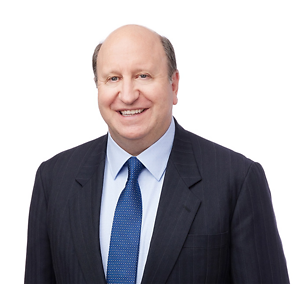SBA Creates New Safe Harbor for PPP Certification Review: Loans Under $2 Million Deemed Certified in Good Faith and Loans Over $2 Million Subject to Possible Loss of Forgiveness (Updated May 14, 2020: New PPP FAQ #47 published)
Overview
Second Round of May 13, 2020 SBA Updates | New PPP FAQ #47 Published
47. Question: An SBA interim final rule posted on May 8, 2020 provided that any borrower who applied for a PPP loan and repays the loan in full by May 14, 2020 will be deemed by SBA to have made the required certification concerning the necessity of the loan request in good faith. Is it possible for a borrower to obtain an extension of the May 14, 2020 repayment date?
Answer: Yes, SBA is extending the repayment date for this safe harbor to May 18, 2020, to give borrowers an opportunity to review and consider FAQ #46. Borrowers do not need to apply for this extension. This extension will be promptly implemented through a revision to the SBA’s interim final rule providing the safe harbor.
First Round of May 13, 2020 SBA Updates (Second round update on FAQ #46 also included below)
The SBA published new FAQ #46 on May 13, 2020 – How will SBA review borrowers’ required good faith certification concerning the necessity of their loan request?
Loans Under $2 Million
Any borrower that, together with its affiliates, received PPP loans with an original principal amount of less than $2 million will be deemed to have made the required certification concerning the necessity of the loan request in good faith. This is a significant and welcome shift in approach and will substantially ease the stress level of most PPP borrowers.
SBA determined this safe harbor is appropriate because borrowers with loans below this threshold are generally less likely to have had access to adequate sources of liquidity in the current economic environment than borrowers that obtained larger loans. The safe harbor also promotes economic certainty as PPP borrowers with more limited resources endeavor to retain and rehire employees. In addition, given the large volume of PPP loans, this approach enables SBA to conserve its finite audit resources and focus its reviews on larger loans, where the compliance effort may yield higher returns.
Loans Over $2 Million
Borrowers with loans greater than $2 million that do not satisfy the safe harbor may still have an adequate basis for making the required good faith certification, based on their individual circumstances in light of the language of the certification and SBA guidance. If SBA determines in the course of its review that a borrower lacked an adequate basis for the required certification concerning the necessity of the loan request, SBA will seek repayment of the outstanding PPP loan balance and will inform the lender that the borrower is not eligible for loan forgiveness.
Again, this is a significant shift and provides much-needed certainty, as borrowers feared being subject to criminal action under the False Claims Act or otherwise. Now, if a borrower repays the loan after receiving SBA notice, SBA will not pursue administrative enforcement or referrals to other agencies based on its determination with respect to the certification concerning the necessity of the loan request. Further, SBA’s determination concerning the certification regarding the necessity of the loan request will not affect SBA’s loan guarantee.
The deadline for returning PPP funds under the prior safe harbor remains May 14, 2020, but now only applies to borrowers with loans over $2 million. The benefit of meeting this deadline is the certification is deemed made in good faith based on a misunderstanding or misapplication of the required certification standard. Borrowers over $2 million who keep their funds will still have to defend the necessity of their loans, subject to current and ongoing SBA guidance. Borrowers should, therefore, memorialize the basis of the necessity of the loan request, to the extent the SBA elects to challenge their loan forgiveness. More guidance is likely on the timing of the SBA notice and the process for appealing a loss of forgiveness determination. But for now, FAQ #46 is a very positive development and will help borrowers of all sizes to more reliably plan for their future.
Added Footnote 20 to FAQ #46’s Reference to Affiliates Published Via Second Round of May 13, 2020 Updates
For purposes of this safe harbor, a borrower must include its affiliates to the extent required under the interim final rule on affiliates, 85 FR 20817 (April 15, 2020).
